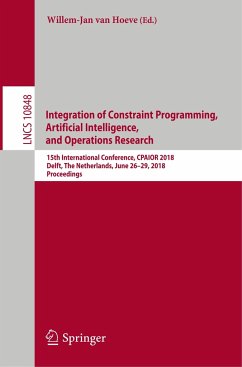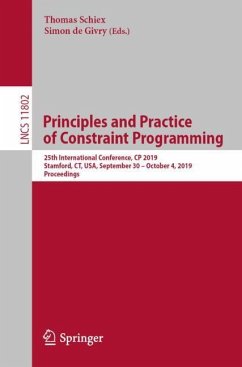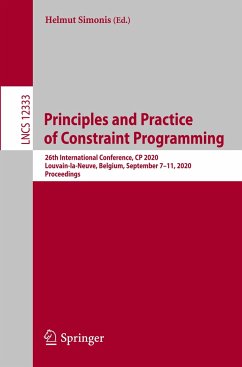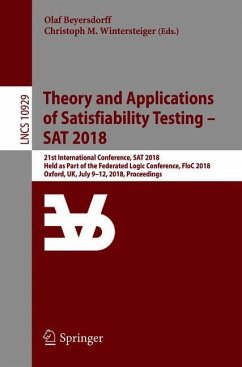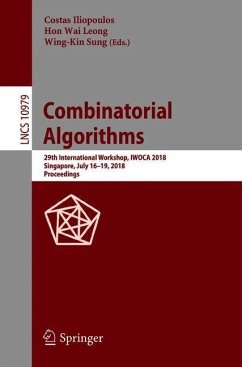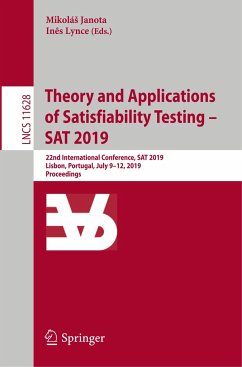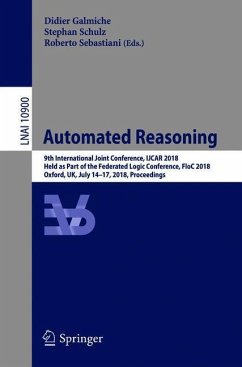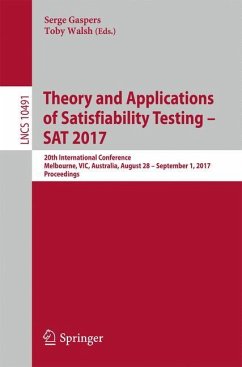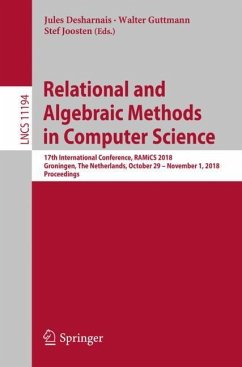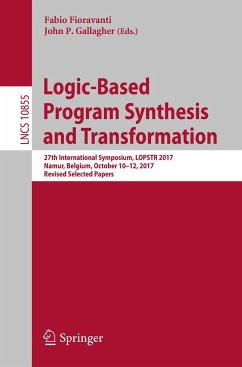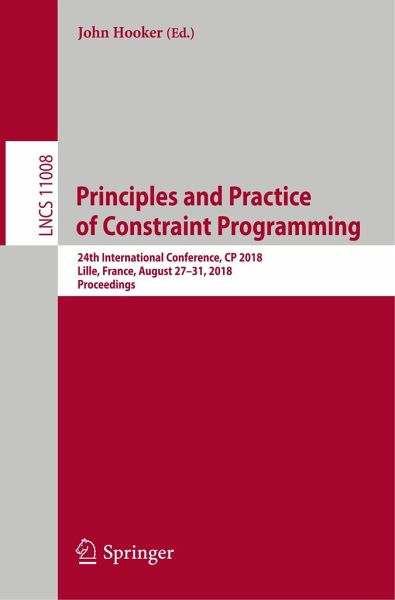
Principles and Practice of Constraint Programming
24th International Conference, CP 2018, Lille, France, August 27-31, 2018, Proceedings
Herausgegeben: Hooker, John

PAYBACK Punkte
39 °P sammeln!
This book constitutes the proceedings of the 24th International Conference on Principles and Practice of Constraint Programming, CP 2018, held in Lille, France, in August 2018.The 41 full and 9 short papers presented in this volume were carefully reviewed and selected from 114 submissions. They deal with all aspects of computing with constraints including theory, algorithms, environments, languages, models, systems, and applications such as decision making, resource allocation, scheduling, configuration, and planning. The papers were organized according to the following topics/tracks: main tec...
This book constitutes the proceedings of the 24th International Conference on Principles and Practice of Constraint Programming, CP 2018, held in Lille, France, in August 2018.The 41 full and 9 short papers presented in this volume were carefully reviewed and selected from 114 submissions. They deal with all aspects of computing with constraints including theory, algorithms, environments, languages, models, systems, and applications such as decision making, resource allocation, scheduling, configuration, and planning. The papers were organized according to the following topics/tracks: main technical track; applications track; CP and data science; CP and music; CP and operations research; CP, optimization and power system management; multiagent and parallel CP; and testing and verification.





